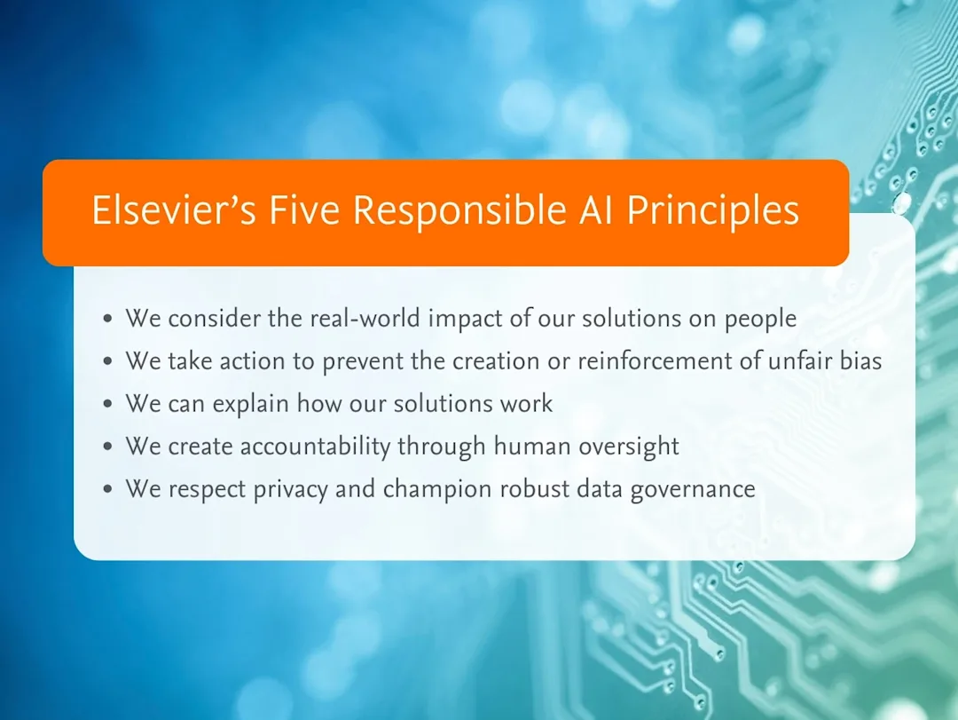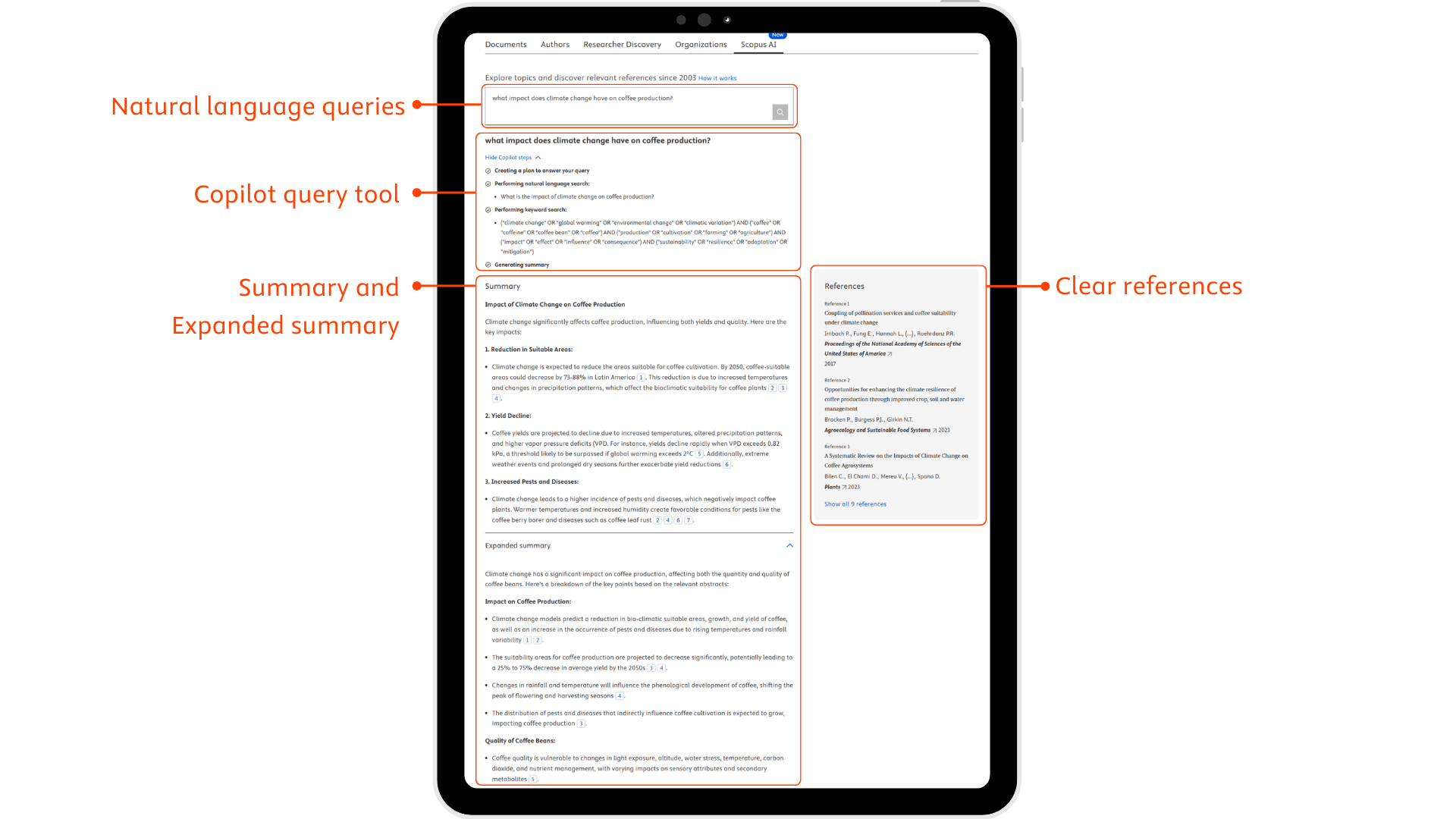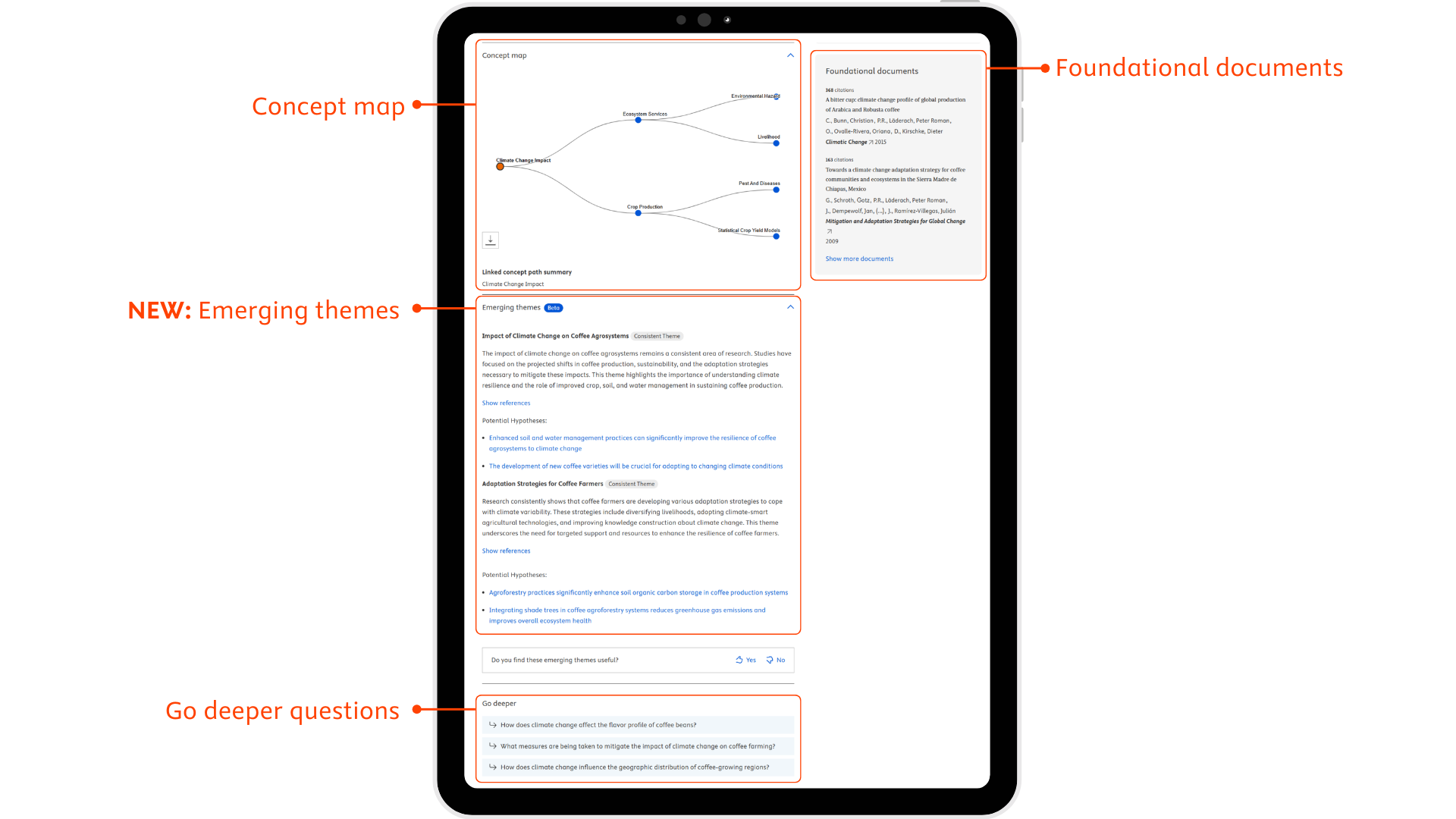
Scopus AI is an intuitive and intelligent search tool informed by GenAI that draws exclusively on the trusted, curated content in Scopus.
Built in close collaboration with the academic community, it has been designed to respond to your natural language queries with focused and easy-to-understand insights on new terms, concepts and disciplines.
Elevating human ingenuity in research
We are at a crossroads. The research process is becoming increasingly automated and impersonal. We launched Scopus AI with a core belief: AI should elevate human ingenuity – not replace it.
Unlike traditional tools that focus on metrics, efficiency or cataloging of information, Scopus AI seeks to transform the role of researchers by accentuating their creativity, critical thinking and unique perspectives.
With one of our more recently launched features, Emerging themes, users can discover fresh and trending research opportunities. This new tool scans Scopus documents from the last two years and clusters them by topic, effectively pinpointing ‘white space’ that researchers can target for research, potential collaborations, or funding opportunities.
Hear from the developers on how Scopus AI came to life and continues to evolve
A smarter way to research
- Think more creatively – 88% of Scopus AI users say it enhances their creative thinking
- Save time – Users report a time saving of more than 50% with Scopus AI
- Refine your focus – 90% of users find Scopus AI helpful in formulating or refining research questions and objectives
See the bigger picture
What if you could spend less time on mundane tasks, and instead focus on exploring bold new concepts, uncovering elusive connections, and making groundbreaking discoveries? With Scopus AI, that’s no longer a dream.
How Scopus AI works
- Enter your natural-language query to begin. An easy-to-follow Summary of the results will be generated, along with Scopus references to provide additional transparency and trust. Dig deeper with Expanded summaries.
- View a graphical representation of the keywords with the Concept map, which visualizes interdisciplinary connections and insights, enabling you to surface and investigate links between topic areas that might otherwise have gone unnoticed.
- Pinpoint “white space” for publications, collaborations, and funding opportunities with Emerging themes, a groundbreaking new feature that identifies and categorizes established, rising, and novel themes based on your query.
- Rapidly pinpoint the most influential Foundational documents on your topic.
- Find leading Topic experts in the field, with explanations of their expertise relevant to your query.
- Go deeper into related queries to discover new perspectives.
The Scopus AI difference
Developed responsibly

Scopus AI is developed in line with Elsevier's Five Responsible AI Principles. For example:
- Robust data privacy: All user inputs are treated in line with our Privacy Policy. We also adhere to European GDPR.
- LLM-specific data privacy: OpenAI’s ChatGPT, hosted on Microsoft Azure, is among the large language models (LLMs) we use. We have an agreement that no user queries will be stored or used to train or improve ChatGPT.
- Content and data governance: Scopus content selection is subject to rigorous checks by an independent board of experts.
Technology with clear scope and instructions
The technology that underpins Scopus AI is maintained for:
- Transparency: Only trusted Scopus content is used in Scopus AI responses and any claims or assumptions are backed up by references. Scopus AI also indicates how confident it is that its response matches your query. And if it can’t find relevant results, it tells you.
- Reliability: Scopus AI features our patent-pending RAG Fusion technology and our Copilot tool. Together, these improve the quality of both the search and responses. The LLM is also guided by strict prompt engineering guardrails.
Collaborating with the community to develop & enhance Scopus AI
Scopus AI was developed in response to a need identified by 60% of Scopus users: to learn about new topics more effectively.
Thousands of researchers, librarians, and academic leaders helped shape the tool. Their feedback also inspired the patent-pending RAG Fusion technology.
We continue to engage with the research community; for example, Scopus subscribers are selected at random to test the tool. The development team closely tracks this feedback and moves quickly in response, often within hours.
In our customers' words
Contact sales form






